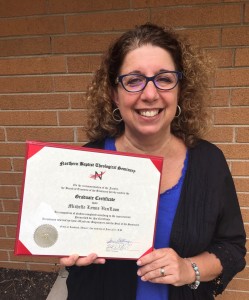A pet parakeet wanders the yard of author, blogger, North Park University professor, birdwatcher and Cub fan Dr. Scot McKnight. The other backyard birds were terrified of the bizarre blue visitor’s quick movements and strange birdsong.
The parakeet made its home in and around the McKnights’ suburban yard most of the summer, and McKnight watched as the birds’ social order gradually changed: “Instead of being shocked by the odd sounds and sudden flights of the parakeet, they gradually became unfazed…When it flew to the feeder, they joined it – not because they were hungry, but because they wanted to be near the blue parakeet…one time I saw about thirty sparrows surrounding the blue parakeet on the neighbor’s garage.”
McKnight contends that the Bible is full of “blue parakeet” passages – shocking, surprising, provocative passages that fly into our lives, squaking and singing and challenging our cozy backyard religious status quo. The central question of this book: “How do you read the Bible? What happens to you when you encounter blue parakeet passages in the Bible will reveal all you need to know about how you read the Bible.”
The first half of The Blue Parakeet: Rethinking How Your Read The Bible offers readers a great discussion about the overarching Story of the Bible, as well as a thought-provoking exploration about the ways people often read the Bible (Morsels of Law Morsels of Blessing and Promises, Mirrors and Inkblots where we look for images of ourselves in the Bible, Puzzling Together the Pieces to Map God’s Mind, and Maestros, those who read the Bible through the lens of a single character). He invites readers to push past some of the old categories many of us have experienced, particularly in evangelicalism:
I grew up with a specific kind of approach to the Bible, and it has taken me a long time to develop a more complete understanding of the Bible. I grew up with what might be called ‘the authority approach’ to the Bible. Simply put, it works with these words: God, revelation, inspiration, inerrancy, authority, and submission…I believe this is an approach that fosters a relationship with the Bible.
Deep inside I knew there was something wrong with framing our view of the Bible like this. It took me years to put my finger on it. Perhaps I can say it like this: When I read my Bible, the words ‘authority’ and ‘submission’ don’t describe the dynamic I experience. It is not that I think these words are wrong, but I know there is far more to reading the Bible than submitting to authority.
Even those who claim to read the Bible literally aren’t wearing tunics of mixed fibers while stoning false prophets. The Blue Parakeet’s user-friendly discussion about how we discern how to obey God’s words is the heart of the book. This conversation about the discernment process leads into the second half of the book – an exploration of what Scripture has to say about the role of women in the church. McKnight’s choice of this issue serves to illustrate the principles he’s laid out in the first half of the volume.
McKnight begins by telling the story of his experience teaching at Trinity Evangelical Divinity School from 1983-1995. (Let the reader note: my husband is a TEDS grad, and the school is my current employer.) During the years McKnight taught at Trinity, the “role of women in ministry” issue was a highly polarized, emotional and frequently-divisive front-burner affair at the seminary. Those on all sides (which is pretty much another way of saying “both sides”) of the issue claimed that their interpretation and application of the blue parakeet texts about women was THE ONE which best captured God’s intent and direction on the issue. I loved McKnight’s courage in talking about the way he navigated the turmoil at TEDS, and appreciated his thoughtful, faithful analysis of what the New Testament both reports and commands about women’s role in ministry. The book concludes with a couple of great appendices, and some interesting first-century thoughts about women.
This 235-page book is written for a popular audience, and McKnight’s warm writing style and touches of humor transform what is usually dense, academic subject matter into the kind of material that everyday Christians like you and I can apply…and which will transform us, if we let it, into people that welcome blue parakeets into our own backyards.












